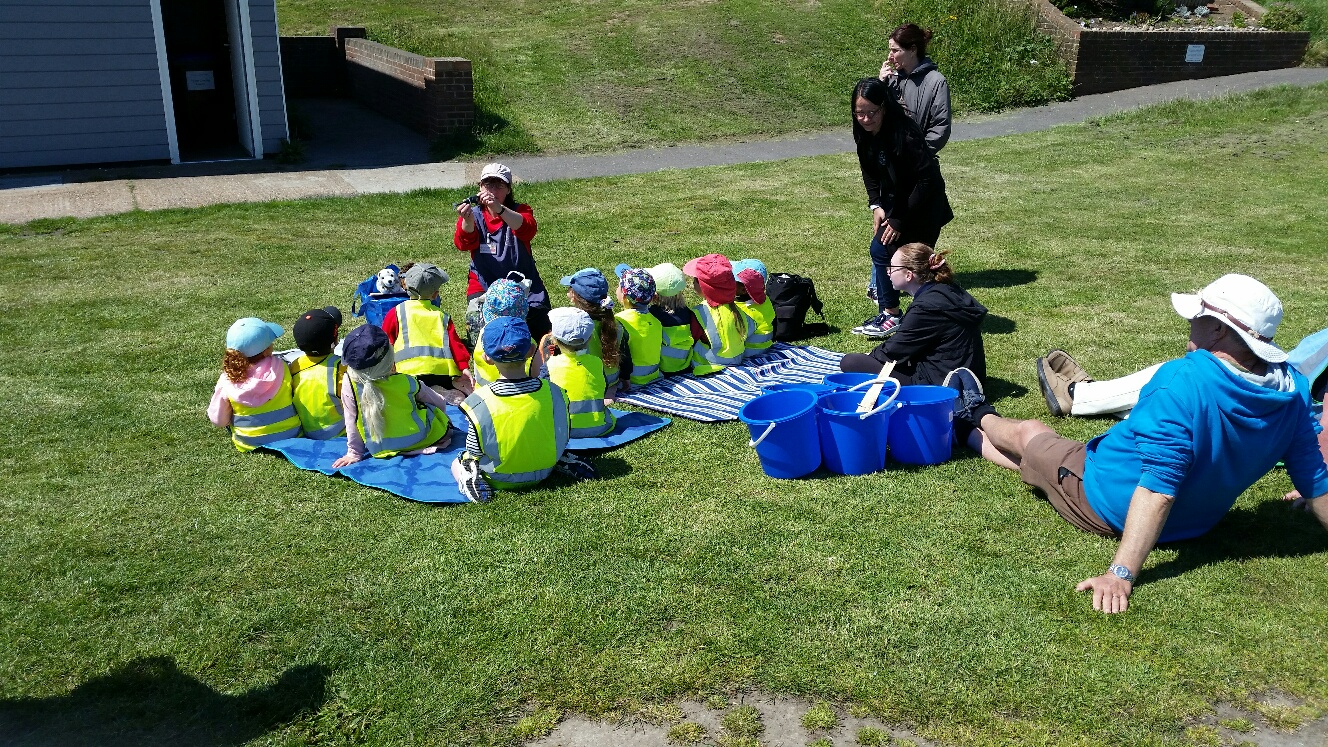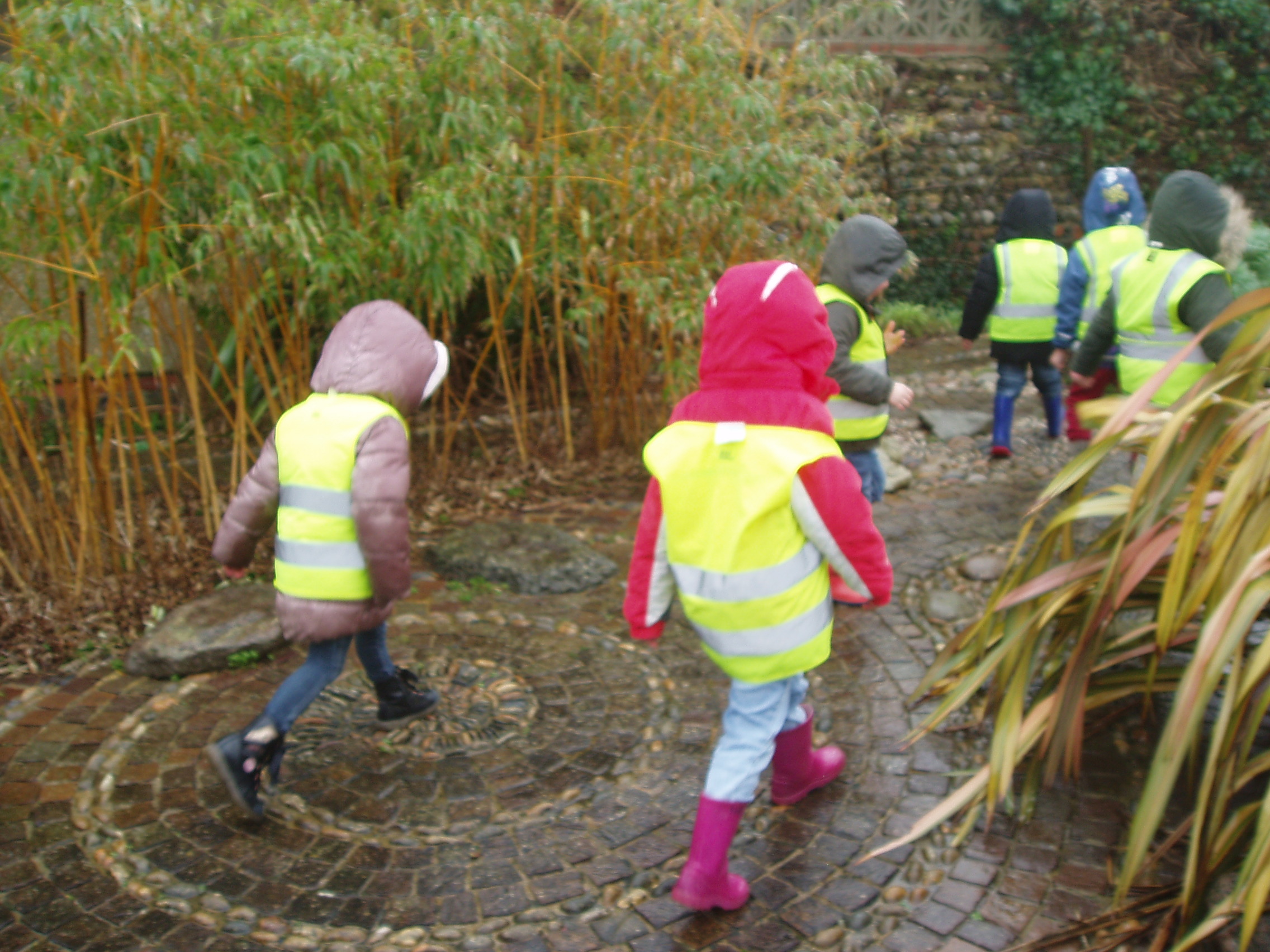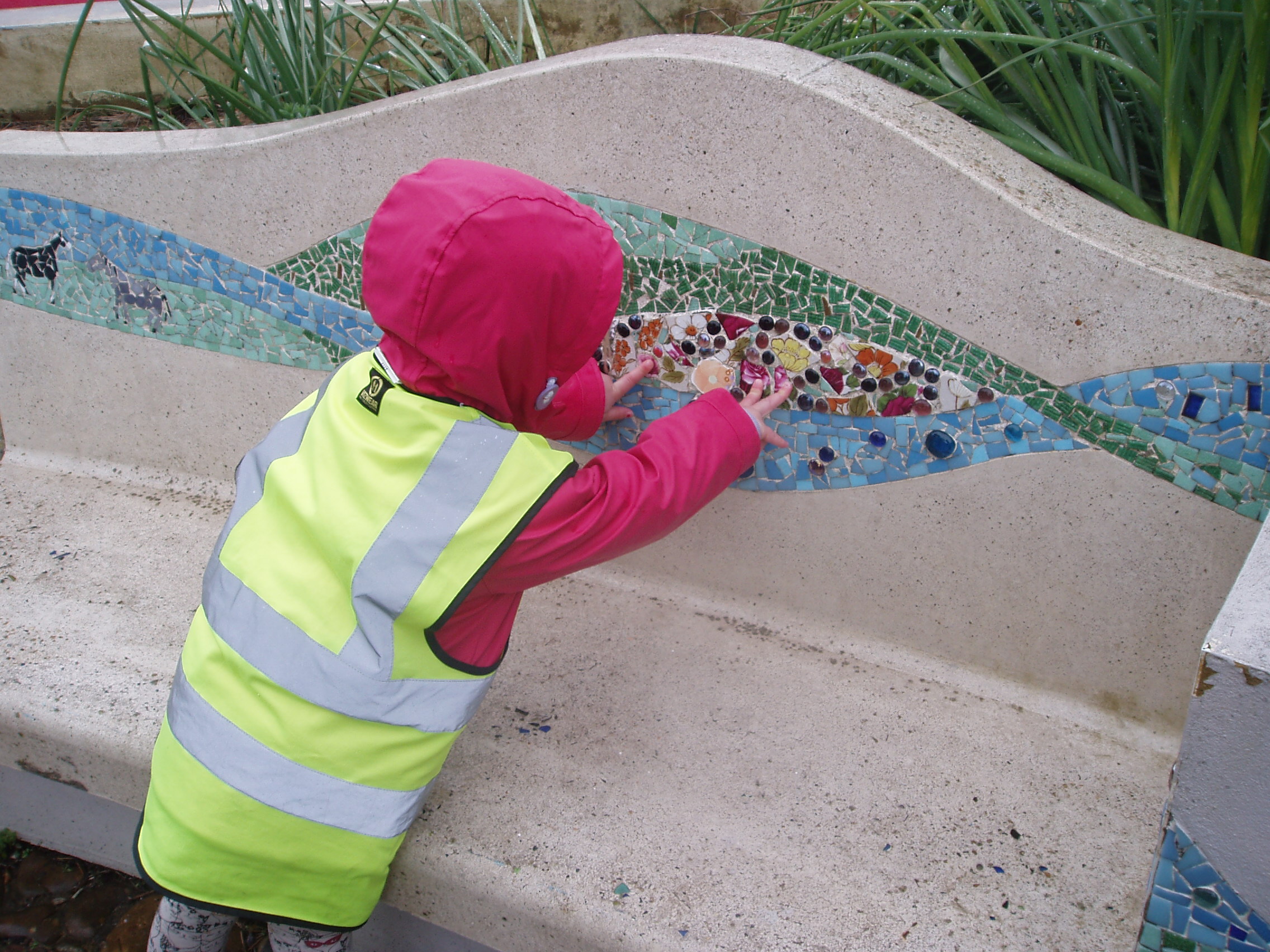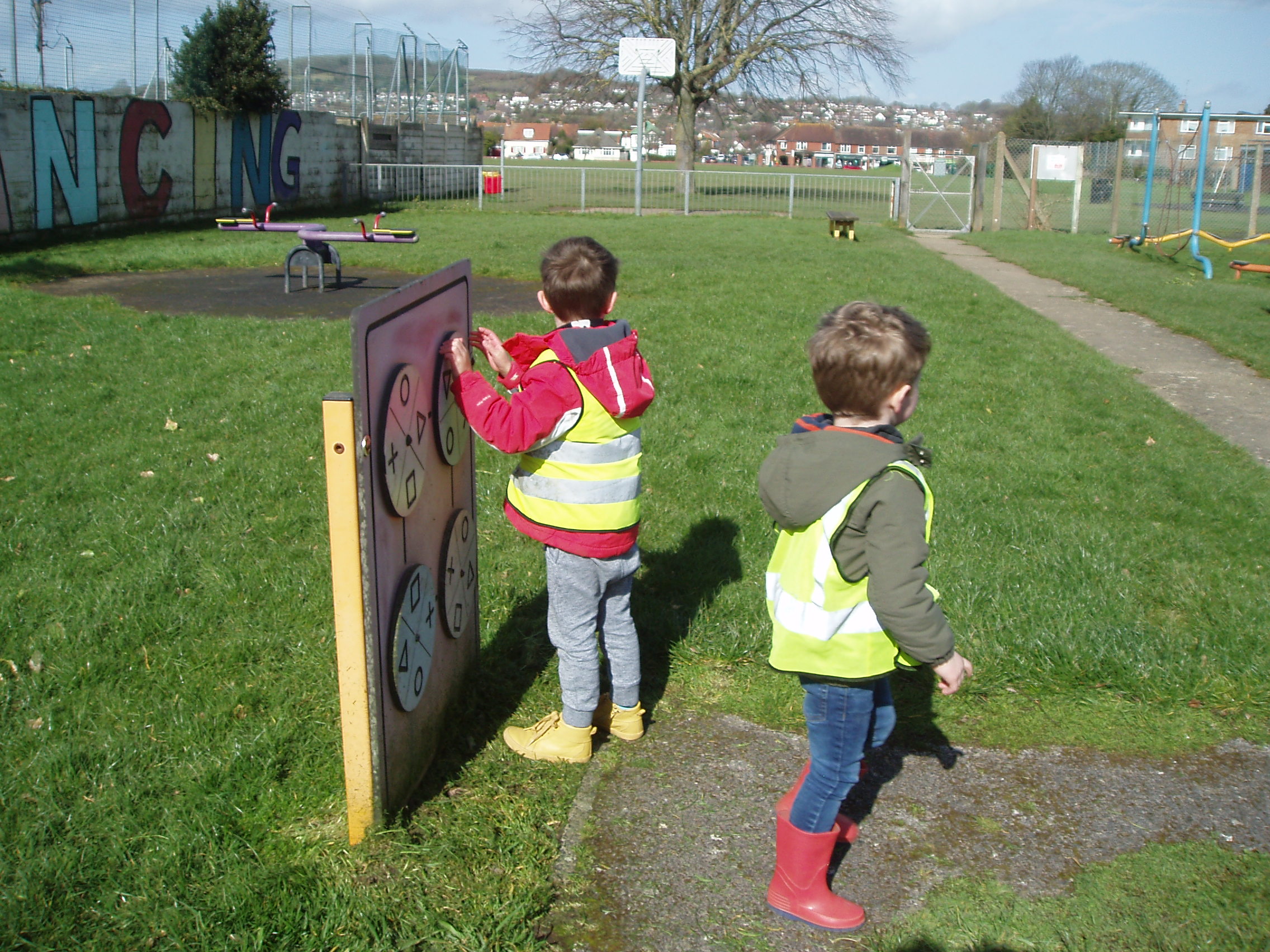During your child's last two terms with us (Summer and Spring terms before starting school), they will be invited to join our afternoon outings, which usually take place on a Thursday afternoon during term time. Most children attend all day on a Thursday, bringing a packed lunch with them, which we sit and eat together before going out.


Initially our visits tend to be short, local ones to the Church, Post box and local sensory garden, but we gradually increase them to include the beach, lots of local parks, the library, shops and bus and train journeys to Brighton, Shoreham, Southwick and Worthing.
These outings provide us with the valuable opportunity to observe the children outside the setting and engage the children with their local community. Many children may not have travelled on a bus or train before and these experiences will widen each child's understanding of the world and community in which they live.


Previously, visits have included Shoreham Lifeboat Station, Brighton Railway Station, Worthing Museum, Splashpoint Park, Marlipins Museum, local shops and libraries, the vet, Wot a Mess, helping Keep Lancing Lovely with a litter pick at the beach and most importantly, we try and take the children to visit Seaside Primary School several times, so that the children become familiar with the Reception classrooms and play areas before starting school.

Even if your child is not planning to attend Seaside Primary, it is still good for them to experience a school environment, which is why we encourage all our older children to attend these sessions, if possible.
We spend some Thursday afternoons at the hall and may have visitors in or use the afternoon to provide specific school readiness activities, focusing on phonics, maths and physical skills. Our summer Sports Day afternoon is usually a big hit too, with a variety of team games and races, including the egg and spoon, relay races, dressing up races and tray carrying races! The staff and children get very competitive over which team will win!
Our policies and procedures tell you about how Playgroup is run and what it should do in specific situations. They are available here so that you know what to expect from us and can be used to ensure that everyone is treated fairly.
Just click on a link to download the policy. We also have a policies and procedures folder on site, which is available to view on request, or we can email or print out specific policies if wanted.
The policies have all been agreed by the Management Committee and are all reviewed and updated at least annually, or more frequently, if needed.
Additional Support Needs Policy
Admissions Policy
Supporting Behaviour Policy and Physical Intervention Risk Assessment
Complaints Procedure and Policy
Curriculum Policy
Diet and Healthy Eating Policy
Early Years Pupil Premium Policy
Emergency or Temporary Closure Policy
Equal Opportunities Policy
Funding and Fee-Paying Policy
Emergency Evacuation Policy
Health, Safety and Hygiene, Accidents and Medication Policy and Procedure
Lost or Uncollected Child Policy
Outings Policy
Record Keeping, Confidentiality and Data Protection Policy and Privacy Notice
Safeguarding and Child Protection Policy and Procedure
Selecting Toys, Equipment and Resources Policy
Settling in Policy
Social Media Policy
Staffing, Employment and Development Policy
Working with Students and Volunteers Policy
Sun Protection Policy
Working with Parents and Carers Policy
Coronavirus (Covid-19) Risk Assessment
| Contact us | Find us |
Contact DetailsPenhill Playgroup "I found the Playgroup on a walk" All parents/carers who responded to our evaluation form said they would recommend the Playgroup to others. (July 2024) |
|
"Being a first time mum has had its challenges and staff have always been a listening ear or offered helpful or constructive ideas to get round any problem, or just the reassurance that you need to say you are doing fine" Parent, 2022
How you can help your child at home

How you can help your child at home
Supporting your child’s Personal and Social Development
Helping Build Confidence:
- Listen carefully to what your child is telling you.
- Show your child that you respect their views and their efforts. (Take interest in and comment on their paintings, drawings, models etc.)
- Show your child that they are special to you.
Supporting Behaviour:
- Be consistent in how you expect your child to behave.
- Try not to be overly hard or overly indulgent with your child.
- Remember to give praise and attention to your child’s good behaviour .
Aiding Independence:
- Encourage your child to be personally independent (e.g. dressing, washing, toileting).
- Give your child choice in his/her daily routines (e.g. choosing which cereal for breakfast, clothes to wear, which walk to take).
- Give your child choices in how he/she uses his/her time at home.
Developing Social Skills:
- Allow your child to meet and socialize with other children during the week.
- Invite other children to play with your child at home.
- Visit other people’s homes.
Encouraging Tolerance and Interest in others:
- Help your child learn about the similarities and differences of others (e.g. from people within your neighbourhood, books, pictures and television).
- Talk to your children about celebrations important to your family and festivals celebrated by others.
Encouraging care for the environment:
- Help your child care for growing things (e.g. through having his/her own patch of garden/window box, providing food for the birds, helping him/her care for a pet).
- Help your child become responsible for keeping the environment tidy (e.g. picking up litter in the park, at the seaside).
Above all, show your child that you really enjoy being with them. Unconditional love is the greatest gift you can give your child, and it costs nothing!
